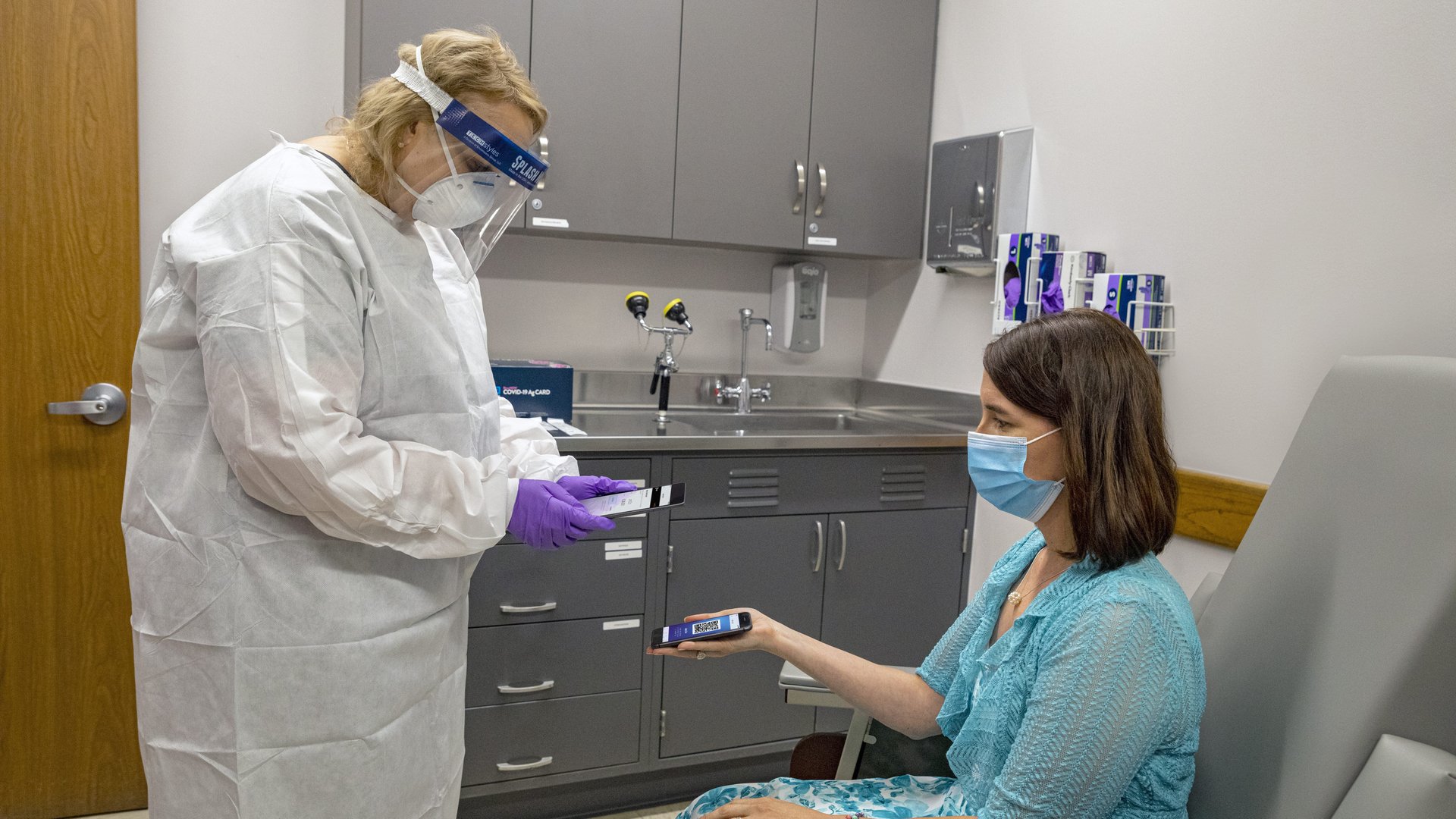A QR code could decide whether you go back to work
Abbott, the company that will supply the US government with 150 million rapid coronavirus tests over the next few months, wants to create a system that will allow schools, businesses, airlines, and event venues to reopen—but only for people who have tested negative for Covid-19.


Abbott, the company that will supply the US government with 150 million rapid coronavirus tests over the next few months, wants to create a system that will allow schools, businesses, airlines, and event venues to reopen—but only for people who have tested negative for Covid-19.
In August, Abbott rolled out an app called Navica alongside its card-based diagnostic test, which returns results in 15 minutes without relying on specialized lab equipment. The app records users’ test results and generates a QR code, which Abbott hopes to market as a “digital health pass,” according to a company spokesperson. Abbott envisions that businesses will scan customers’ QR codes at the door before letting them in.

“We believe workplaces, schools, and other organizations could use the app along with the test to help ensure safer access to facilities and make the return to daily life activities smoother and more confident,” a company spokesperson said in an emailed statement.
If it catches on, Navica would be the first widespread coronavirus pass in the US. But much like so-called immunity passports, which would allow those with coronavirus antibodies to traipse freely while the rest of the world hunkers down, Abbott’s app faces two big obstacles: low testing volumes and unequal access.
“If we were able to do repeat testing for everyone that needed it regardless of their ability to pay, and then use the app, that would actually be a really good idea,” said Brooke Nichols, an assistant professor of global health at Boston University. “But with 150 million rapid tests, probably not. There are more than 150 million people in this country.”
White House officials said that Abbott will deliver 6.5 million tests this week, and the company said it will ramp its production up to 50 million tests per month by the beginning of October. Because Abbott’s tests are cheaper and simpler than standard PCR tests, US president Donald Trump has encouraged states to use them to monitor students and teachers and reopen schools. Still, at Abbott’s ramped-up rate it would take a month and a half to test all K-12 students and teachers once—and an app like Navica would rely on routine testing to be effective.
“A test is just a snapshot,” said Gigi Gronvall, an immunologist and associate professor of public health at John Hopkins University. “An airline might want you to show proof that you’ve tested negative a couple of days before flying, but you could get infected the next day.”
Abbott says negative test results stay valid in Navica for seven days. If the country wanted all workers and consumers to get results on a weekly basis, it would have to produce over a billion tests per month. Given the current testing scarcity—and the fact that 19% of Americans don’t own smartphones—Nichols said business and government leaders would need to be careful about how to implement a system of health passes.
“We see massive inequalities in our society that are just getting worse by the day,” she said. “This is one thing that will contribute to that, unless we make [testing] widely available.”